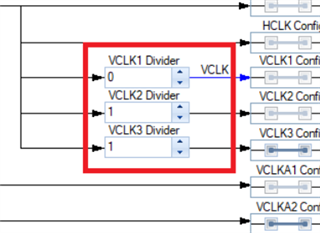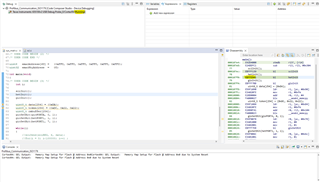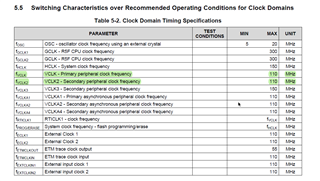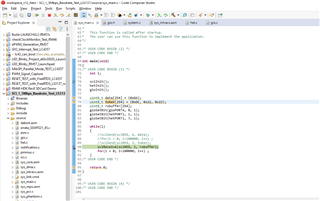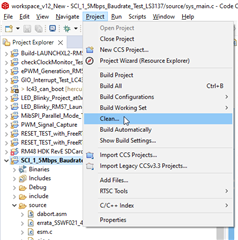Other Parts Discussed in Thread: PROFIBUS, HALCOGEN
Hello everyone,
I developing an appliacation for profibus. TMS570 microcontroller send to profibus command to profibus transciver via UART(SCI).
We need to set the baud rate to 1.5Mbps. But I can't setting this speed for baud.
Our clock frequency(Vclk) is 90Mhz.

I calculated baud rate with this formula.
For prescaler=3
Baud rate is 1.4Mbps
For prescaler=2
Baud rate is 1.8Mbps
I can't get 1.5. Therefor receiver device can not understand our profibus messages.
Because of that I need to configure to baudrate with fractional. However, it never changes my Tx signal when I use the fractional divider selection bits(M).
On the other hand, I don't understand why the value of the M bit is between 0-3h? Isn't it 3 bits?
My goal is to set the baud rate to 1.5Mbps without making any changes to Vclk. Because I can set the baud rate to 1.5Mbps when Vclk=50Mhz.
I can follow the baud rate with oscilloscope.
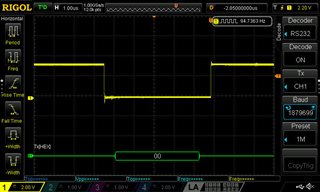


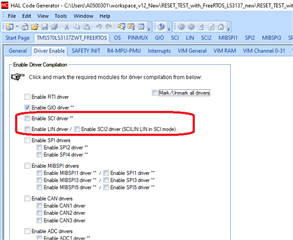
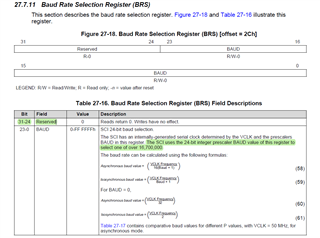
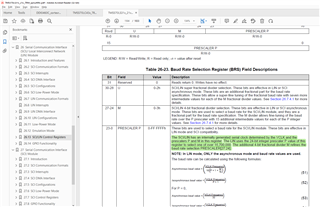
 .
.